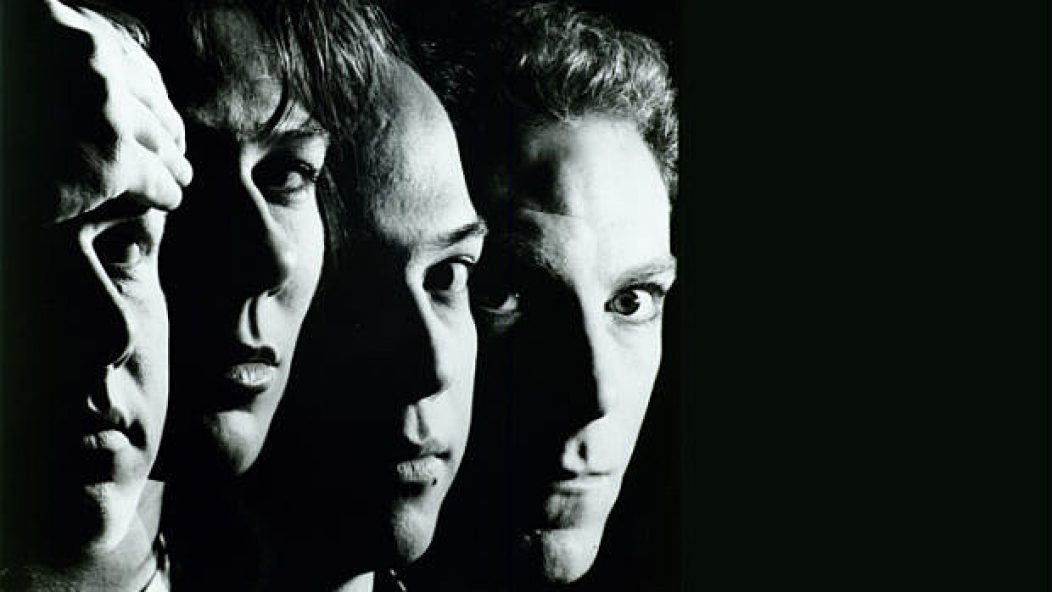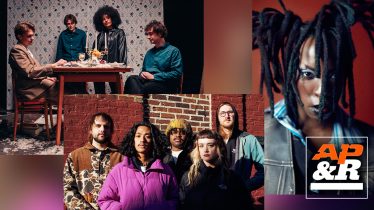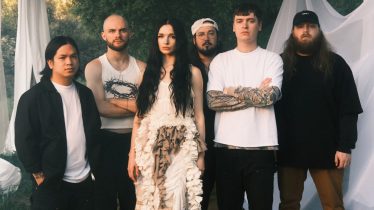
“We were just getting along—we knew we had something special going on”—Pixies reflect on 'Doolittle'
On December 2, 4AD is releasing PIXIES: Doolittle 25, a three-disc set featuring the original 1989 LP plus demos, B-sides and BBC Radio sessions. The first Pixies record helmed by British producer Gil Norton, Doolittle finds the seminal college-rock quartet—vocalist/guitarist Black Francis (aka Charles Thompson), guitarist Joey Santiago, then-bassist/vocalist Kim Deal and drummer/vocalist David Lovering—firing on all cylinders. Shuddering bass lines and scabrous, corrugated guitars abound, matched in intensity and rawness only by Francis' tonsil-scraping howls and the kind of dynamic outbursts that have influenced acts such as Jack White, Weezer and Foo Fighters.
Still, Doolittle is both diverse and cohesive. The songs touch on frayed punk, simmering noise rock, distorted blues, raucous surf-rock, cracked country and even accessible (if abstract) pop. Best of all, the album is all emotional and instrumental precision; no song overstays its welcome, and the compact arrangements maximize the music's aggression. “Gil wanted a lot of the songs extended,” Santiago recalls in a recent phone interview with AP, “but Charles played Gil the Box Tops hit, 'The Letter.' That clocks in a little bit under two minutes, so that was our signpost. It doesn't have to be long; the songs don't have to be like that. You can get in and out of there and cut out all of the fat.”
In two separate phone conversations, Lovering and Santiago spoke to AP about what they remember recording the album, working with Norton, their perspective on both the album's enduring legacy and revisionist rock criticism.
What do you recall most about recording the album?
DAVID LOVERING: When we did Doolittle, we were stepping up to a new producer—Gil Norton—that had been suggested to us. That was new and exciting. We went into a bigger studio and recorded. Everything for us was a stepping-up process, in a way. It was a wonderful experience. It was quite enjoyable; we ended up mixing through Thanksgiving, and I remember celebrating Thanksgiving down in Connecticut while we were mixing it in the studio.
JOEY SANTIAGO: I remember putting this cloth over my amp, and I told Gil, “This is how I want it. I want it dry.” [Laughs.] The song “Hey” was cut live; it was one of the only songs we cut with all of us in one room. It came out great. Charles [Thompson, aka Black Francis] is in the broom closet, and we did it. We killed it; it was a good version. Usually, we track separately.
Doolittle was a fast recording. You basically tracked everything in a couple of weeks.
SANTIAGO: Yeah, two weeks and then we mixed for about a week. We were ready—we were very ready. The pre-production with Gil was very intense. That was the first time we ever did pre-production. We were very familiar with those songs, because we practiced the hell out of them before Gil came. Some of them we were already playing live. All the parts were there.
What was it like working with Norton? It sounds like he was very focused and knew in which direction he wanted to go.
SANTIAGO: “Here Comes Your Man,” [Gil] sped it up—and before it was more of a country song, and we were kind of hesitant about making it that way. It came out very, very poppy, and we refused to play it; we never played it until the reunion. We knew [Gil's] pedigree; he worked with Throwing Muses and he did Echo And The Bunnymen. We were maybe a little nervous working with him. But we did a track with him, “Gigantic,” and after that, it was like, “Okay, this guy is pretty comfortable to work with.” He's a stickler—he's very, very precise. Like Charles said, he's from Liverpool, and they have a tendency to get hits out of you. Get the clean sound and the tempo and click track. First time we ever did something with a click track, too.
What did you learn from Gil Norton?
LOVERING: One of the first things I learned from working with Gil was I had to learn how to use a click, playing along to a click tempo. And at first, it was very daunting; it was tough. I've been doing it so long and doing so many albums with Gil, I've got it down. You know, Gil is also known as the fifth Pixie since he's done so many albums for us… [And] you learn why a producer is so good. His producing skills, his ear and everything is wonderful. But what a producer mostly also has is the gift of tact, and being an ambassador in running the ship in the social setting. And Gil is wonderful at it. That's why he's part of the family, the Pixies call him that.
What impressed you about your bandmates during the recording of Doolittle? Is there anything that stood out to you about their contributions?
SANTIAGO: It was the same as [1988's] Surfer Rosa; we were very, very ready. We all got along. We mixed at this place called the Carriage House. We each had our own room, and we would hang out doing the mix and listen, cook meals for each other and all that stuff. We were just getting along—we knew we had something special going on.
I saw the Doolittle tour in Chicago about five years ago, and what struck me was how ecstatically the crowd received the record. I think there were a lot of people who were too young to see you, or who never saw you the first time around. When the record originally came out, what kind of response did you get? How did it compare to the reaction 20 years later?
LOVERING: With the Pixies, I think we were critically acclaimed. I guess in terms of our popularity, I don't know how that was. With Doolittle, I thought the songs were fantastic on it, and I thought it would do well. But it just [performed] like I'd say all the other albums [did], just made a little more notice for us. It was funny in retrospect—Rolling Stone did a review of Doolittle and gave it, I think it was, 3 stars. [3.5 stars. –pedantic archival ed.] And then they re-reviewed it and gave it 5 stars after almost 20 years or something. [Laughs.]
When we did play the Doolittle tour—and not only the Doolittle tour, but I would say since 2004, since we reformed—when you look out into an audience, the majority of it I would say is kids that weren't even born when our records [were out], and they know every song, they sing every word. What's funny about it, is now it's 2014, 10 years later—there are still the kids coming who are that age relatively, 14, 15 years old, who have heard about us, and this and that, and know all the songs. It's fantastic. We're a very fortunate band. alt








